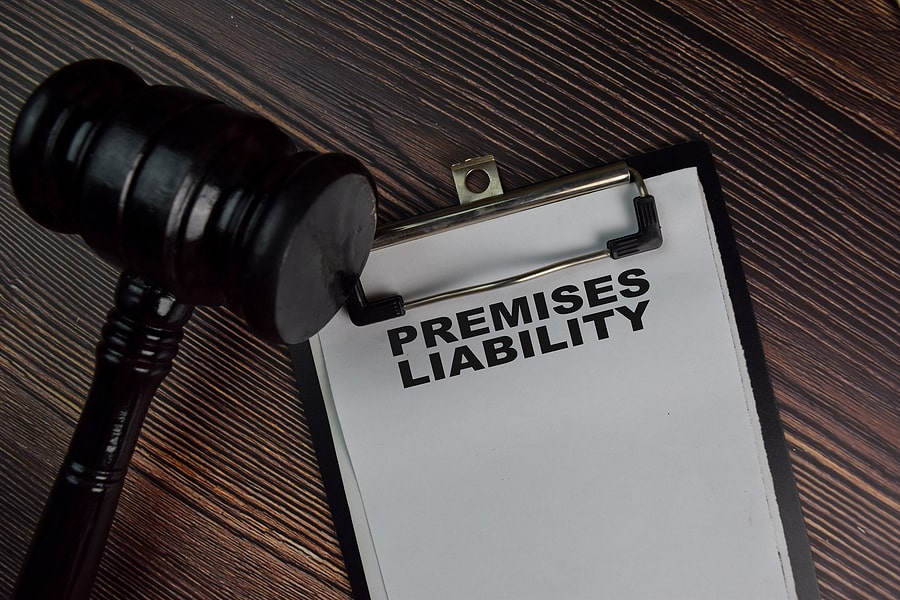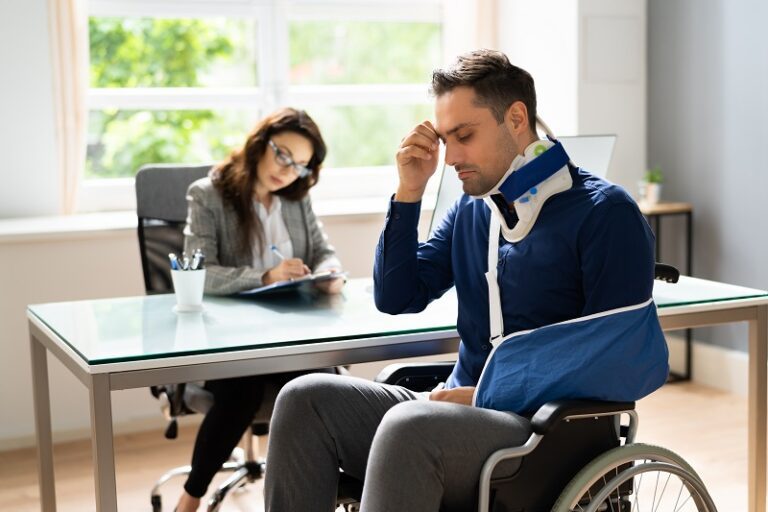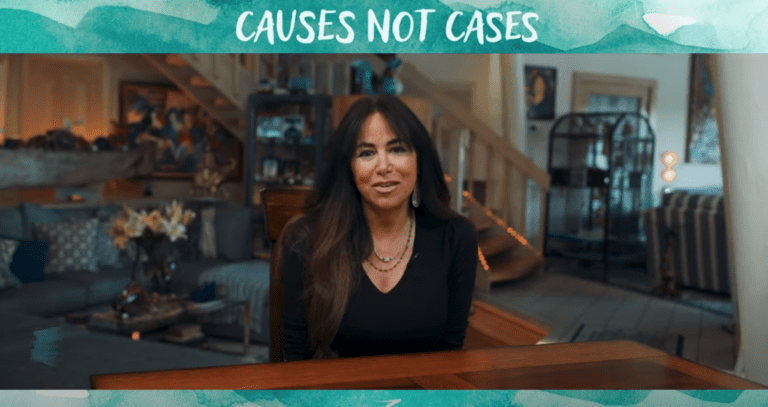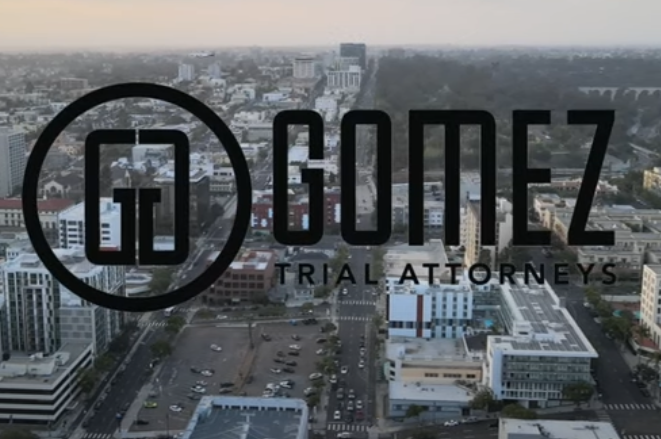
Property owners (commercial and residential) owe you a duty of care while you’re on their premises. Whether you’re an employee, customer, or visitor, property owners should consider your safety. This includes maintaining the property in safe conditions or warning you of any lurking dangers.
Failing to do so equates to negligence, and negligent property owners should cover any damages you sustain should you get hurt. However, compensation under premises liability does not always flow automatically. If you have had an accident on someone’s property, you must prove that the property owner owed you a duty of care.
In most cases, the property owner’s insurer might want to shift the blame to you to evade the claim or reduce liability. Property owners achieve this by riding on legal defenses, such as:
Comparative Negligence
For instance, if you had a slip and fall accident due to a slippery floor, the insurance company might argue that you ought to have exercised more caution and thus bear partial liability for the accident. This principle of apportioning fault is called comparative negligence and allows at-fault parties to reduce your compensation by the percentage of your fault.
Assumption of the Risk
Sometimes, the insurance company might employ an assumption of risk defense to reject your claim by arguing that you knew of the danger. For instance, if a tennis player borrows a court for practice and then falls and sustains an injury after tripping over a pothole, the court owner’s insurer might claim the player assumed the risk. The property owner will likely argue that the player should have inspected the court and ought to have noticed the pothole before beginning the practice.
How to Prove Premises Liability
Despite the above and other defenses that the insurer might present, an experienced premises liability lawyer can develop a strong case to defend against defensive arguments and prove the owner’s negligence. Essentially, if you can clearly demonstrate a breach of duty of care and quantify your damages, then you will have a valid claim against the defendant.
In proving a property owner’s negligence, injured plaintiffs must prove certain elements, including:
#1. Duty
As earlier mentioned, property owners ought to guarantee the safety of the users. Ideally, property owners should:
- Maintain their properties in safe conditions.
- Inspect their properties continuously to identify any dangerous situations.
- Repair or rectify any identified risky situations.
- Place warning signs conspicuously on the unsafe areas.
If a property owner relies on any of the defenses mentioned above, he or she might fail to convince the court, since in both cases, the properties had unsafe conditions and the property owners failed to make the necessary repairs. This brings us to the next element required to validate your claim: breach.
#2. Breach
By failing to maintain the property and repair any conditions that might hurt users or place warning signs conspicuously, the owner breaches the required duty of care. In some cases, the property owner may argue that he or she lacked knowledge of the dangers.
For instance, if a water pipe near a pavement suddenly started leaking, making it slippery, the owner may argue that he or she did not know about the danger. However, a property owner’s duty of care involves doing regular property inspections and ensuring users’ safety at all times.
#3. Causation
You must also demonstrate that the property owner’s breach of duty directly caused the accident and injuries. For example, if the property had slippery floors, and the owner failed to place warning signs, leading to your accident, you can argue that you did not know the floors were slippery and that the property owner’s failure to warn you caused the accident and your injuries.
#4. Damages
An accident alone does not warrant compensation, as accidents do not always result in injuries. For example, if you trip and fall due to an uneven floor, you may or may not get hurt.
To qualify for compensation, you must have suffered substantial damages from the accident, such as medical costs, nursing care, loss of income, etc. In this case, you will have to provide evidence, like medical records, a letter from your employer, and other relevant documents.
Important notes:
- When pursuing compensation in premises liability cases, you must identify the person who had actual control of the property. For instance, if a tenant bears responsibility for the property maintenance, the landlord won’t bear liability for accidents caused by the tenant’s negligence. However, if the issue involves a structural defect, for which the landlord bears responsibility, then the landlord owes you the duty of care.
- Again, if an employee bears responsibility for maintaining the employer’s premises, any negligence on the employee’s part that could lead to an accident, such as failing to dry a wet floor, is charged against the employer. In this case, the employer owes you a duty of care, even though it’s the employee who slacked on his or her duties.
Essentially, defendants in a premises liability case can include:
- Business owner
- Homeowner
- Property manager
- Tenant
- Institution
- Government agency
Common Types of Premises Liability Accidents
Premises liability accidents vary from one setting to another. From poorly maintained buildings to equipment-related accidents and animal attacks, premises liability carries a host of hazards.
Some common ones include:
- Slip and fall hazards – These can result from various factors, such as wet or slippery floors, poorly maintained sidewalks, uneven floors, unsecured carpets, cables left on the floor, etc. If the property owner fails to put warning signs about danger spots around the premises, he or she bears liability for any resulting slip and fall incident.
- Animal injuries – If a property owner has an aggressive animal, the owner must keep it restrained. In case you visit the premises and get injured by the animal, you have a right to seek compensation for the damages sustained.
- Swimming pool accidents – Property owners ought to put fences around their swimming pools to prevent possible drowning, especially of children. Also, no one should leave small children unsupervised around an open pool. Otherwise, failing to meet these requirements can attract legal action under premises liability in case of an accident.
- Construction site hazards – Construction sites often prove unsafe. Falling objects, prolonged exposure to harmful chemicals, and hazardous machinery constitute common accident causes in construction sites. For this reason, construction managers have to implement strict safety guidelines to keep the workers safe. They also must zone out the construction areas to keep the public, who might not understand all of the safety measures, safe. Neglecting to implement this can attract legal action against the owner or contractor if anyone gets hurt.
- Amusement park accidents – Amusement park owners bear responsibility for providing a safe environment and machinery for their customers. For instance, if people get hurt while riding a faulty roller coaster, the owner should bear liability for their damages under premises liability laws.
- Robbery injuries – Property owners ought to secure their buildings from potential break-ins. If you’re in a building, and thugs break in and hurt you, you can lodge a premises liability claim if you can demonstrate the owner had failed to take reasonable precautions to secure it. Possible hitches that you can highlight would include faulty alarm systems, unsecured locks, etc.
Other possible accidents covered under premises liability laws include fire hazards, snow and ice accidents, elevator and staircase accidents, and more.
Common Injuries Resulting From Premises Liability
Premises liability claims cover any injury caused by an accident sustained on the property.
The most common injuries include:
- Broken bones
- Head and neck injuries
- Shoulder and ankle injuries
- Spinal cord injuries
- Soft tissue injuries
- Electrocution
- Burns
- Muscle and ligament strains and tears
- Ailments from exposure to toxic substances
Damages Awarded in a Premises Liability Claim
The damages awarded in a premises liability claim will vary depending on the extent of the injuries and the strength of the evidence to prove the property owner’s level of liability. Generally, you may receive compensatory damages only or with additional punitive damages, depending on the circumstances surrounding the accident.
These damages may include:
- Medical costs. You can recover all medical costs incurred following the accident. These may include expenses for doctor’s visits, hospitalization, tests, prescriptions, therapy, nursing care, surgery, assistive devices, and any other costs incurred when seeking treatments such as travel expenses. In addition, you should estimate and include any future medical treatment expenses.
- Lost wages. If you cannot work after an accident, you can receive lost wages for the entire duration that you have to miss work. In case the accident results in disability, and you cannot return to your job, you can receive compensation for lost earning capacity. This involves computing future wages for the remaining years to your retirement.
- Disfigurement damages. In case you sustain physical disfigurement from the accident, a premises liability claim allows you to seek compensation.
- Psychological damages. In some cases, the trauma from the accident might affect you psychologically, necessitating treatment. If you have suffered anxiety, depression, mood disorder, or any other mental issue following the accident, which you have sought treatment for or intend to, you likely qualify to pursue compensation for the same.
- Wrongful death damages. If pursuing justice for a loved one who lost his or her life in a premises liability scenario, you qualify for compensation. Damages awarded may include medical expenses incurred if your loved one was hospitalized following the accident, burial and funeral costs, and beneficiary benefits.
- Pain and suffering. Besides the quantifiable economic losses above, you can also receive damages for the pain and suffering that you have experienced. This might prove difficult to compute accurately, but an experienced premises liability lawyer can help you estimate an appropriate amount.
- Punitive damages. You may receive punitive damages if you can prove the property owner caused the accident willingly. However, these are awarded at the sole discretion of the court. There are also a few instances where property owners destroy evidence following an accident. If you have evidence showing the owner destroyed evidence to evade blame for your accident, the owner may have to pay punitive damages as a punishment.
To Whom Do Property Owners Owe a Duty of Care?
In a premises liability case, a plaintiff may fall under any of these categories.
- Invitee – You’re an invitee if on the premises for business reasons, e.g., as a customer. Legally, an invitee has permission to be on the property, hence owed a duty of care. This is the highest duty of care, and requires the owner to be diligent in his or her maintenance of the property.
- Licensee – Assuming you were on the premises for personal or social activity, that makes you a licensee. Legally, you also have permission to be on the property, and the owner ought to warn you of any potential dangers.
- Trespasser – Unlike the first two, a trespasser does not have permission to enter the property. However, property owners should place conspicuous signs warning of potential dangers should people enter the property. On that note, owners should not lay traps for trespassers, fully aware they’re likely to get hurt if they enter the property. Even though you may have been a trespasser, the owner still may have had a duty to prevent the harm.
The law provides special exceptions to child trespassers as it’s assumed that children are naturally curious and may feel tempted to venture into areas where they do not have permission to go. If your child was harmed by a dangerous condition, even if trespassing, the owner of the land may be liable.
Statute of Limitations
If you plan to file a premises liability claim, you should know about the statute of limitations. Essentially, the statute of limitations involves a set time limit within which the law allows you to file a compensation claim.
In our case of premises liability claims, the statute of limitation is usually two years from the date of the accident. If you lodge the claim after this period, the court will likely dismiss it. In this eventuality, you would miss out on any compensation regardless of how much you have lost. In some instances, for example if the government was the owner of the property, the statute of limitations may be shorter.
A possible exception involves if you were under 18 years when the accident happened. In this case, the statute of limitation deadline starts counting once you attain 18 years.
If you have a premises liability claim that you intend to pursue, reach out to a premises liability lawyer today for a free case evaluation.







